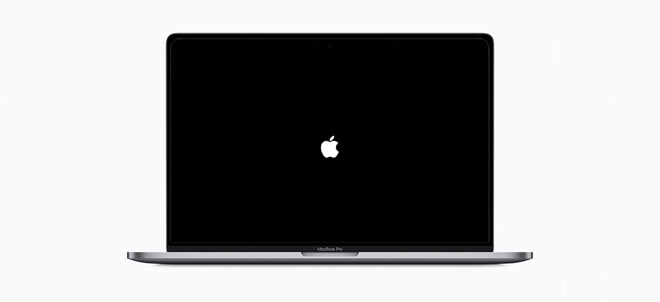The Mac startup chime is making a return in macOS Big Sur
Apple is officially bringing back the Mac startup chime with macOS Big Sur, four years after removing it in a previous version of the operating system.

Credit: Apple
The classic Mac sound was removed from Apple's lineup of computers with the introduction of the 2016 MacBook Pros with Touch Bar. Ever since then, macOS has been silent on startup.
That changes in the first macOS Big Sur beta. AppleInsider confirmed the chime's reintroduction on a 2018 Mac mini and a 2016 15-inch MacBook Pro.
Based on social media posts from developers running the first beta, it looks like the startup chime is widely available on other models, too. It appears that users can toggle the sound on and off, since there's now a new "Play sound on startup" option in System Preferences.
Apple first teased the chime's return during its WWDC 2020 keynote. While it didn't actually confirm the fact, Apple's macOS Big Sur features page does state that "system sounds are all-new and even more pleasing to the ear," and were created using snippets of the originals.
During Monday's WWDC keynote, Apple VP of Human Interface Design Alan Dye said that the new sounds are "familiar to the Mac, but remastered and more refined."
Although a software update in 2016 removed the startup chime, a later update to macOS Catalina actually added them under-the-hood -- though it required a Terminal command to actually enable them.

Credit: Apple
The classic Mac sound was removed from Apple's lineup of computers with the introduction of the 2016 MacBook Pros with Touch Bar. Ever since then, macOS has been silent on startup.
That changes in the first macOS Big Sur beta. AppleInsider confirmed the chime's reintroduction on a 2018 Mac mini and a 2016 15-inch MacBook Pro.
Based on social media posts from developers running the first beta, it looks like the startup chime is widely available on other models, too. It appears that users can toggle the sound on and off, since there's now a new "Play sound on startup" option in System Preferences.
Apple first teased the chime's return during its WWDC 2020 keynote. While it didn't actually confirm the fact, Apple's macOS Big Sur features page does state that "system sounds are all-new and even more pleasing to the ear," and were created using snippets of the originals.
During Monday's WWDC keynote, Apple VP of Human Interface Design Alan Dye said that the new sounds are "familiar to the Mac, but remastered and more refined."
Although a software update in 2016 removed the startup chime, a later update to macOS Catalina actually added them under-the-hood -- though it required a Terminal command to actually enable them.

Comments
In the end, many small projects focusing on developing very specialised pro tools with limited resources needed for scientific work will be left behind; I hope this situation will not happen as described above. But welp. iOS Apps on Mac and a system becoming entirely hostile towards modification in a way that is necessary for highly specialised applciations frequently found in research and development (read: where the root of all computer chippery and scientific work lies).
Can we please stop thinking in terms of everything as an "App" being limited in some way by artificial limitations imposed by financial interests? That iPad look on the Mac tells everything.
You may do research, but only as long as it benefits Apple on those Macs coming soon which is absolutely not what general purpose computing means.
macOS != iPad OS as stated last year is obviously becoming a statement which cannot be relied on any longer.
Right here:
For what it’s worth, they showed Cinema 4D running a textured view in emulation in the Platforms State of the Union. Let’s wait and see how these actually run on the Macs when they ship and you may not have to wait for native to keep working.
No, it doesn’t. Visual similarities between the OSes have absolutely nothing to do with functionality or lack thereof.
I think your fears over open source software are overblown. They demonstrated their dedication to keeping macOS friendly to open source software and listed a bunch of OS projects they were actively helping patch to port over to the new architecture. Watch the Platforms State of the Union.